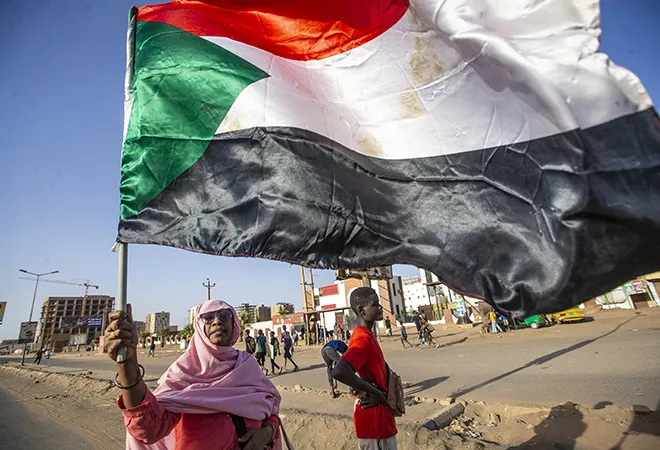The Paradoxical Sentiments
The neoteric altercations in the ongoing trajectory of Sudan's politics raise a familiar repertoire of probing questions: Does the unprecedented transition, precisely 'a paradigm shift' in Sudan's politics, have something to do with the neglected, ongoing 'Muslim crises'? These altercations are not merely political but have manifested as the devastating 2023 conflict between the Sudanese Armed Forces (SAF) and the Rapid Support Forces (RSF), which has, according to the UN Office for the Coordination of Humanitarian Affairs (OCHA), displaced over 10 million people. If not, what hindrances have blindsided the Sudanese populace from upholding their identity as Muslims?
Through a thorough analysis of the dynamics transpiring within the flanks of geopolitics, it is comprehensible that Sudanese Muslims have been envisioning 'identity crises' internalized within themselves. Sudanese, who once were the typical embodiments of Islamic propagation, have now turned-out phantoms slandering Islamic values and norms—enough that they have become vulnerable to non-Islamic (even, anti-Islamic) models. Incident reports from the 2023 war, for instance, detail widespread looting, sexual violence, and occupation of mosques by combatants, actions directly contravening core Islamic prohibitions and reported by groups like Human Rights Watch.
While the global Muslim organisations and confederations have been addressing what happens in Sudan's periphery, they're
failing to project the factual 'rejuvenation' of Sudanese Muslims, bringing them back to their 'lost identity'. Similar actions have been adopted; for instance, in 1983, President Numeiri's attempt to endorse 'Shariah-grounded approaches' in order to retain cohesion rather than break it. The 1983 'September Laws' are a prime incident, where Numeiri publicly implemented hudud punishments, including amputations. This move was reported at the time as an attempt to co-opt Islamist support to save his failing regime, rather than a genuine societal rejuvenation.
► Tracing the roots of Sudan
Historically, Sudan had been a deplorably backward nation, marginalized by the reductionist attitude of ingrained societal prejudices based on one-way stereotypes. This alienation was evident in the 'Closed Districts' ordinance under the Anglo-Egyptian condominium, a policy reported by historians to have intentionally isolated the South—which had indigenous and Christian populations—from the Arabo-Islamic North, sowing seeds of division. As the global order altered its course, Sudan too became prone to, in fact, a cascade of unprecedented changes in the name of 'renovations', but the reality made them alienated from Islamic culture in a manner that disrupted the quintessence of spirituality in Sudan.
The Sudanese populace, which once held an invariable position in Islamic history, often known as the 'most Salafi-chanting nation', became vulnerable and the systems turned crooked. Soon, Sudan became secular; however, it transgressed the very balance as a whole. The upsurge of separatist movements and militarist forces left an indelible mark on the internal fabric of Sudan's internal politics. A prime example is the War in Darfur, which erupted in 2003. UN reports and International Criminal Court (ICC) indictments documented widespread atrocities by government-backed Janjaweed militias, including the destruction of villages and ethnic cleansing, leaving an estimated 300,000 dead and millions displaced in a clear case of militarist forces devastating a region.
► Resolving the disparity
The Sudanese people are now in a 'state of anomie', which is quite dysfunctional as it pertains to the global order. Reports from organizations like the Armed Conflict Location & Event Data Project (ACLED) in 2024 confirm this anomie, mapping the complete collapse of state services in cities like Khartoum and the rise of localized, competing militias filling the power vacuum. The first step towards resolving the persistent hurdles is to strengthen the bond between every Muslim—maybe they're ethnically disparate—by counteracting the paramount centrifugal force of disintegration and demoralisation. Otherwise, the changes shall remain a negative contributor to the efficient working of a functioning system.

